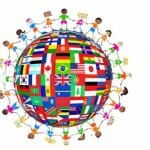All authors have an agenda that propels their writing. The quality of their overall plan and marketing strategies oftentimes determines the popularity of their work. However, a book’s success in terms of readership or sales doesn’t always correlate with the actual merits of the book. A book may generate intense interest and on the surface appear to be well written despite the fact that it lacks cultural and historical authenticity and potentially denigrates an ethnic or cultural group. Multicultural literature should undergo considerable scrutiny before it is shared with children.
Various educational experts have sited different criteria. A comprehensive rubric is found within a Johns Hopkins University School of Education bulletin. The main categories included in Jennifer Johnson Higgins 13 point rubric are listed below .
- The story is well written
- There are no distortions or omissions of history.
- There is no stereotyping in the text of the ethnic group being portrayed
- The illustrations are authentic
- The lifestyles of the characters are culturally accurate.
- The dialogue used is culturally authentic
- Standards of success are consistent across cultures.
- The role of females, elders, and family are culturally accurate
- Effects to a child’s self-image are taken into consideration
- The author’s or illustrator’s background is relevant to culture portrayed.
- Relationships between characters from different cultures are relevant and authentic.
- Heroines and Heroes are portrayed authentically within their respective cultures
- The copyright date reflects the current understanding of the dynamics of the culture being written about.
Higgins’ rubric includes an agenda. She clearly favors multicultural books that are written and illustrated by people who are part of the culture being portrayed. She is not alone in this belief. I question whether this should always be a factor.
- Is it possible to write a quality book about a group other than your own group?
- Do you need to be part of a culture to write an adaptation or retelling of a folktale or fable?
- Is it incorrect to illustrate folktales and fables using stereotypes and exaggerations?
- Are all of the above criteria pertinent to every genre?
- Can an illustrator from one culture capture the essence of another group?
While this comprehensive checklist is useful in doing an intensive study of multicultural literature, it is impractical for teachers to scrutinize every book to such an extent. Instead of going point-by-point, I will limit my attention to anything that is unnatural or inappropriate and highlight items that make a book shine. Additionally, I will provide brief summaries and in some instances suggestions for usage.
I acknowledge that I am not an expert on all cultural and ethnic groups. At times my ability to determine authenticity and accuracy may need to depend on the help of others who have more firsthand knowledge. I will definitely have an easier time critiquing books that fall within the genre of American Jewish literature. As I write about different books, please let me know if I fail to point out any facts or portrayals that create a false image or impression.
Can you recommend any books that are written and/or illustrated by “outsiders” that are authentic and well written?
Related Blogs
10 Responses to My Teaching Abroad
“What if” Everyone Had the Opportunity to Be Literate?
Precautions When Traveling to a Third World Country
Children’s Reading Preferences: USA and India
An Expat Teaching Moment: Sharing Traditions
Author Bio
Sandra Bornstein is the author of MAY THIS BE THE BEST YEAR OF YOUR LIFE. It is available on Amazon.
The book chronicles her living and teaching adventures in India.
Sandra’s memoir was a finalist in the Travel category for the 2013 Next Generation Indie Book Awards, the 2013 International Book Awards, the 2013 National Indie Book Excellence Awards, a Honorable Mention award in the Multicultural Non-Fiction category for the 2013 Global ebook Awards, and a 4 star rating from Indie Reader Discovery Awards.

This is great Sandy! I will send this on to friends to see if they have any suggestions!
I look forward to hearing suggestions.
I just came upon an “insider’s” view of critiquing multicultural literature. Please click http://www.umakrishnaswami.com/common-errors to see award winning author Uma Krishnaswami’s view regarding “authentic” multicultural books. Do you agree with her?